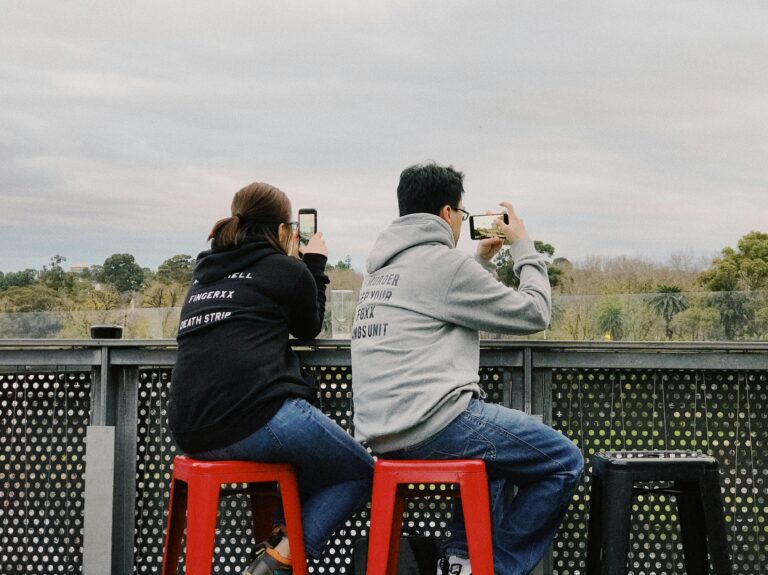We’ve Lost the Spark – Can We Get it Back?
4-6 minute read.
Whether you’ve been together for just a year or for a decade, it’s completely normal for desire to come and go like a changing tide. One day you may feel extreme sexual desire towards your partner, and the next, be completely turned off by the thought of intimacy.

When you first got together, just seeing your partner probably gave you that flutter. But if that feeling’s faded now you’re deeper into the relationship, that doesn’t mean something’s wrong. That initial electric excitement naturally shifts as you build trust and settle into the rhythm of being together.
Desire ebbs and flows throughout a relationship. Some days you’ll feel incredibly drawn to your partner, other days not so much. This is completely normal, whether you’ve been together a year or a decade.
We’re often sold the idea that losing that instant attraction means the relationship’s in trouble. It’s not. As relationships develop, context becomes crucial for desire. If you’re someone who needs the right circumstances to feel sexual desire, searching for a “spark” might be sending you down the wrong path entirely.
The spark comes from within
I tend to avoid using “the spark” when talking with clients, because it’s a bit misleading. What people usually mean is a mix of anticipation about being intimate with someone they fancy, combined with nervousness about whether it’ll happen or not. That flutter you feel is your body’s response to these emotions. It’s coming from you, not from them.
Think about getting ready for a first date. That feeling’s already building as you’re choosing what to wear, wondering if they’ll like your outfit, imagining the conversations you’ll have, hoping it goes well. When you meet, if there’s physical attraction, your humour clicks, and conversation flows easily, you feel more confident things will work out. That’s when the feeling intensifies.
Fast forward to a long-term relationship where you trust each other completely. There’s no uncertainty about compatibility anymore. You’re already together, so the stakes feel lower if an intimate moment isn’t perfect. You’ve become familiar with each other and you’ve got secure attachment.
The issue might not be a missing spark at all. It could be that you and your partner experience desire differently, or something in your life is getting in the way of feeling desire in the first place.

There’s this idea floating around that you should always fancy your partner on the spot for a relationship to be healthy. That’s not how it works for most people. In reality, most relationships have at least one person whose desire needs a bit of context to kick in.
I often compare sexual desire to hunger. Some people could eat all day, every day. Others need to smell something cooking or take a bite of something delicious before their appetite wakes up. Desire works the same way. Some people want sex with their partner regardless of what’s going on around them, while others need a few things to align before they feel sexually interested.
If your desire shows up regardless of circumstances, you’re probably a spontaneous desire type. People with high spontaneous desire often connect emotionally through sex and might even be up for it straight after an argument.
If your desire depends more on context, you’re likely a responsive desire type. You need to be in the right headspace emotionally to feel sexual excitement. After a row, sex is probably the last thing on your mind.
Arguments aren’t the only thing that affects responsive desire types. It’s anything that suggests your partner isn’t being thoughtful or caring. If the house is a mess, dishes are piled up in the sink, and the bins still haven’t gone out despite three reminders, someone with responsive desire probably won’t be feeling intimate.
Here’s what matters: having different desire styles doesn’t mean you’re incompatible. And these aren’t fixed categories either. You might lean more spontaneous some days and more responsive on others, or find your style shifts at different points in your life.

Talk to each other
Even if you’ve been together for years, you won’t always know what’s going on in your partner’s head. That’s why keeping communication open and honest matters throughout your relationship.
If you need certain things sorted before you can feel desire, tell your partner. When they explain what works for them, listen. Make sure you’re both creating the conditions where desire can actually show up.
Some people scoff at scheduling intimacy, but it’s just as valid as spontaneous sex. Actually, if it works for you both, it shows you’ve taken time to understand each other and found an approach that suits you both.
That said, if scheduling doesn’t feel right, that’s fine too. The key is talking through what’s getting in the way and working it out together. Relationships naturally go through moments of disconnection and reconnection. Open communication is what helps you repair those moments and brings back that feeling of wanting to be close.
Working out how desire shows up for each of you is essential. Once you understand that, you can figure out what changes might help you both feel desire at times that work for you.



